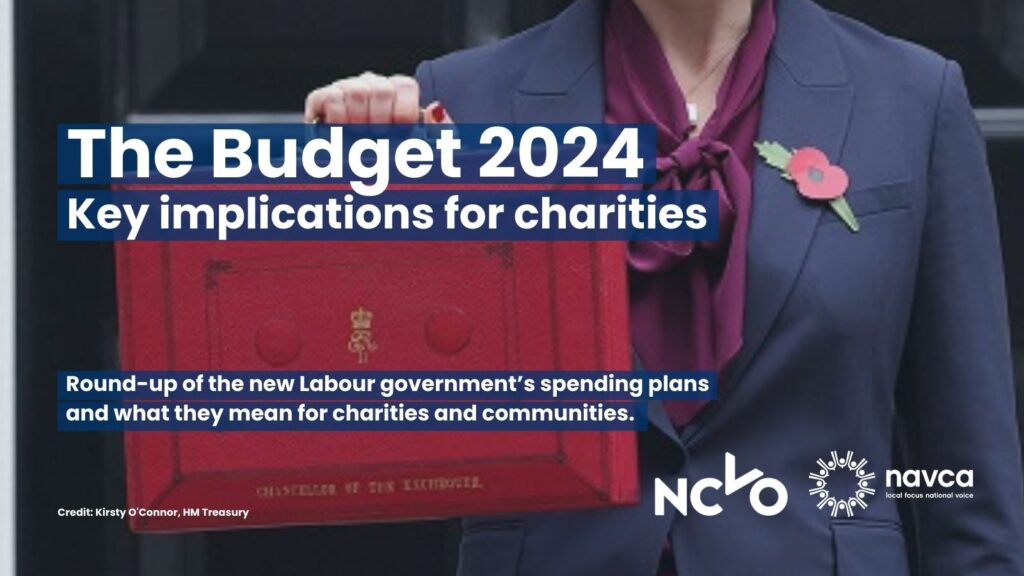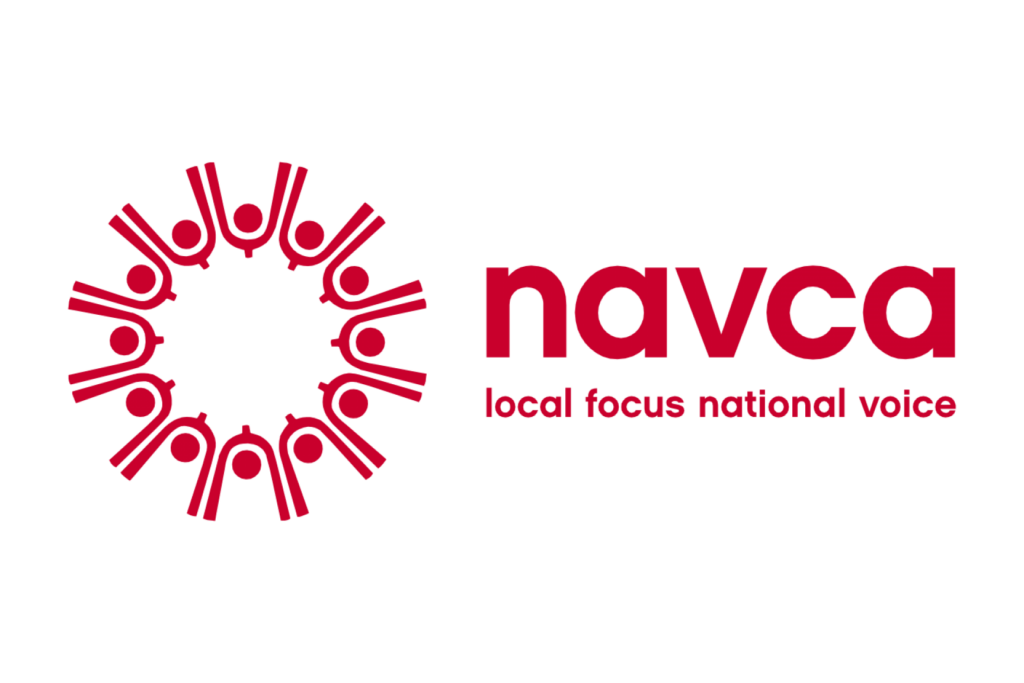Budget 2024: Key implications for charities

The 2024 budget sets out the new government’s tax, welfare, and spending priorities up to March 2026, with a framework for spending beyond April 2026.
In response NCVO and NAVCA have released round ups with key highlights from the Budget 2024 and what it means for charities and communities.

Key announcements for charities and communities
Several budget measures will likely help the voluntary sector and the communities it supports. They include:
- Increased local government funding: A 3.2% rise in core local government spending, with at least £600 million in new funding for social care.
- Support for individuals and carers: Reduce Universal Credit debt deductions (from 25% to 15%). Raise the weekly earnings limit on Carer’s Allowance. Conduct an independent review of Carer’s Allowance overpayments.
- SEND support: £1 billion (a 6% real-terms rise) to support children with special educational needs and disabilities (SEND).
- Funding for hardship support: £1 billion next year to extend the Household Support Fund and hardship payments.
- Education funding: An additional £30 million for free breakfast clubs.
- Funding for Holocaust education: An additional £2 million to support Holocaust education charities.
Additional budget measures
Additional budget measures that may impact voluntary organisations and their communities include:
- Increased Charity Commission budget from April 2025, alongside a 3.5% real-terms reduction in the DCMS budget.
- £240 million for local “trailblazer” programmes. They will streamline work, health, and skills support for inactive individuals.
- Changes to VAT and business rates relief for private schools. VAT relief is removed. Business rates relief is for those providing full-time education to pupils with education, health, and care plans.
- New legislation to prevent charity tax rule abuses set to take effect in April 2026.
- £26 million for mental health crisis centres.
- £300 million for further education and £40 million for the Growth and Skills Levy (formerly the Apprenticeship Levy) for training.
- Research and development tax reliefs maintained and over £2 billion in health research and development investment.
- Inheritance tax reliefs maintained for those who choose to leave a gift to charity in their will. Read Remember a Charity’s full response to the budget for more information.
- A 1.8% annual real-terms rise for all central government departments through 2029/30. This aims to support public services, including the NHS and schools.
You can read the full round up from NCVO, including impact on the voluntary sector and next step here…

The Autumn Budget announcement saw many potential changes and challenges for the voluntary sector and for the communities we work with. In our latest blog post, we highlight some of the key announcements and what they could mean for NAVCA members and their local communities.
Rachel Reeves’ first budget as Chancellor is quite different from that of her recent predecessors. There have been announcements of significant increases in taxes and public borrowing, all to fund more public spending. This increase in public spending brings additional funding for the NHS, local government, and a small amount for social care.
We welcome announcements that will continue the core work of voluntary sector organisations in communities, supported and enabled by local infrastructure organisations (LIOs), including:
- £1 billion for the Household Support Fund (HSF) and Discretionary Housing Payments in 2025-26
– The UK Shared Prosperity Fund (UK SPF) will continue for a further year, at a reduced rate of £900 million
– £240 million for pathfinder projects for employment support programmes, as part of plans in the Get Britain Working White Paper
– An additional £1.3 billion for local government, including £600 million for social care and £230 million for homelessness and rough sleeping.
The increase in National Living Wage is very welcome but, coupled with the increase in employer national insurance contributions, creates challenges for LIOs and other VCSE organisations in covering additional costs.
We know that local governments are facing significant financial difficulties, sometimes leading to the issuing of a section 114 notice. Yesterday’s Budget announced additional funding for social care, homelessness, Household Support Fund, special educational needs, and the UK Shared Prosperity Fund, which will bring some relief, although many local authorities will still face significant budgetary pressures. We look forward to learning more about government plans to support the local authorities in most difficulty, and reforms that will return the sector to a sustainable financial position.
Through NAVCA members’ work with Integrated Care Systems and their VCSE Alliances, we will support VCSE organisations to continue their work within health and social care, particularly with the development of the NHS Ten Year Plan. There has been a £22.6 billion increase for day-to-day spending for the NHS, and an increase of £3.1 billion in the capital budget for 2024-25 and 2025-26, which will help ease some pressures.
We will continue to work on behalf of our members and the VCSE sector for sufficient and sustainable funding from central and local government grants and contracts. In welcoming proposals for reform of local government funding, we will advocate for long term multi-year funding agreements that take the value and contribution of local infrastructure and VCSE sector into account. We will continue to engage with MHCLG, DHSC, DCMS and other relevant government departments to push the case for local infrastructure within the spending review.
